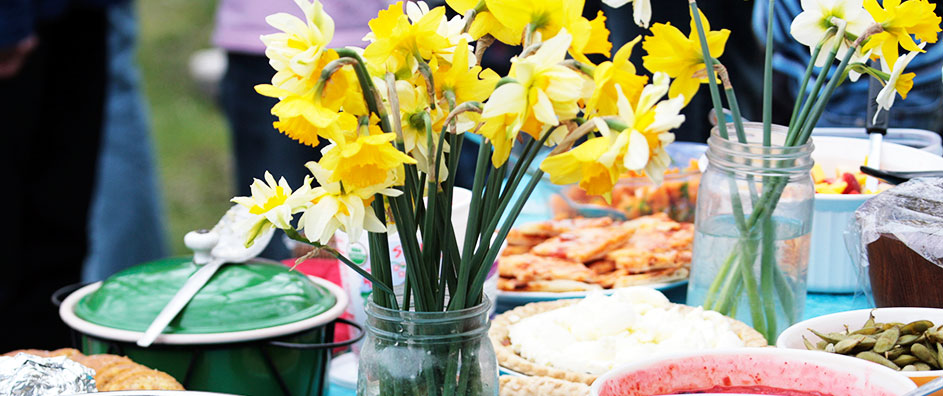The Bahá’í calendar is a remarkable construct, uniquely interwoven with the rhythms of nature and human experience. Among its distinctive features are the Intercalary Days, a period designated for feasting, rejoicing, and acts of charity. These days, known as Ayyám-i-Há, play a pivotal role in embodying the core Bahá’í principles of love, unity, and generosity, offering followers an opportunity to reassess their spiritual and social commitments in a festive atmosphere. This article will delve into the significance of the Intercalary Days, elucidating their historical context, spiritual underpinnings, and practical applications within the Bahá’í community.
Historically, the concept of intercalation is not novel, finding roots in several ancient calendars to align lunar and solar cycles. For the Bahá’ís, the Intercalary Days align with the period preceding the month of fasting, which culminates in the celebration of Naw-Rúz, the New Year. This alignment is not merely logistical; it instills a transformative perspective into the essence of time, allowing believers to contemplate their place within the overarching continuity of existence. The days serve as a bridge, transitioning believers from a state of preparation and self-reflection into a season of renewal and joyous celebration.
In terms of Bahá’í teachings, the Intercalary Days emphasize the importance of community and the act of giving. They are characterized by communal gatherings, feasts, and charitable acts, reflecting the Bahá’í commitment to fostering unity among individuals and promoting social welfare. These days are often heralded as a time when the ideals of fellowship reach their zenith, encouraging Bahá’ís to engage in acts of compassion and generosity toward those in need. This not only reinforces the notion of collective responsibility but also rekindles a sense of interdependence among humanity.
Spiritual preparation for these days involves introspection. Bahá’ís are encouraged to engage in prayer and reflection, contemplating their actions and relationships in light of their spiritual obligations. It is a time to purge negative thoughts and cultivate positive attributes such as kindness, generosity, and love. This preparatory phase underlines the overarching promise of a shift in perspective; it beckons followers to look beyond the mundane and embrace a higher reality, one characterized by unity and altruism. In doing so, the Intercalary Days engender an environment where personal growth can flourish, unlocking pathways to deeper spiritual awareness.
Feasting during these days is not merely a celebration of abundance; it serves as a profound reminder of the values inherent in hospitality and togetherness. Bahá’ís are encouraged to invite friends, family, and even strangers into their homes, thus cultivating an atmosphere of camaraderie and connection. Such gatherings present a fertile ground for dialogue, fostering deeper understanding and appreciation among diverse communities. It also allows for the sharing of ideas and experiences, ultimately reinforcing the Bahá’í belief in the importance of unity in diversity.
While feasting and rejoicing are integral components of the Intercalary Days, the emphasis on charity cannot be overlooked. Engaging in charitable acts during this period carries significant spiritual rewards, acting as a catalyst for both personal and communal upliftment. Bahá’ís are encouraged to evaluate their resources and identify ways to assist those less fortunate. This could manifest in various forms, including financial support, volunteering time and effort, or simply extending kindness and compassion to others. In this way, the Intercalary Days serve as a clarion call, beckoning believers to transcend their individual concerns and contribute to the collective good.
The practice of charity during these days is intrinsically linked to the Bahá’í view of the interconnectedness of humanity. Each act of giving, no matter how small, reverberates throughout the community, instilling hope and joy in those who receive it. The reciprocal nature of this exchange emphasizes a collective commitment to uplift one another, forming a tapestry of compassion that binds the community together. Furthermore, it nurtures a sense of gratitude among the givers, as they reflect on their blessings and the ways they can contribute to the well-being of others.
The Intercalary Days also invite a radical reimagining of how time itself is perceived. In an age where the hustle of modern life often overshadows spiritual and communal commitments, these days offer a poignant reminder of the importance of pausing to celebrate life’s blessings. They stand as a testament to the belief that time should be marked not solely by the mundanities of daily existence but by meaningful connections, joyful gatherings, and compassionate actions that reflect the heart of Bahá’í teachings.
As Bahá’ís observe the Intercalary Days, they are also called to consider their impact on the world at large. How can these periods of feasting, rejoicing, and charity foster understanding and cooperation across cultural divides? How can the spirit of service engender movements toward social justice and equity? These contemplations elevate the Intercalary Days from mere observance to a profound opportunity for systemic change, inviting believers to actively shape a world reflective of Bahá’í ideals.
In closing, the Bahá’í Intercalary Days embody a rich confluence of celebration, spirituality, and social responsibility. They are an invitation to the soul, urging believers to embrace a life marked by joy, kindness, and reflection. This sacred period promises not only personal transformation but also communal enrichment, casting a long and luminous shadow over the pursuits of a unified and progressive humanity. In essence, the Intercalary Days are a powerful reminder of the Bahá’í commitment to the betterment of the world—a clarion call for believers to engage in the spiritual and social tapestry of life, knit together by threads of love, charity, and joyous celebration.
